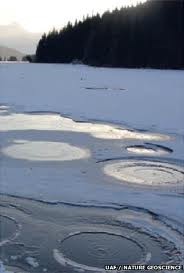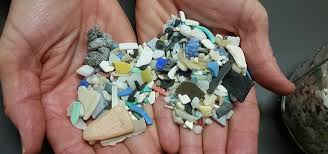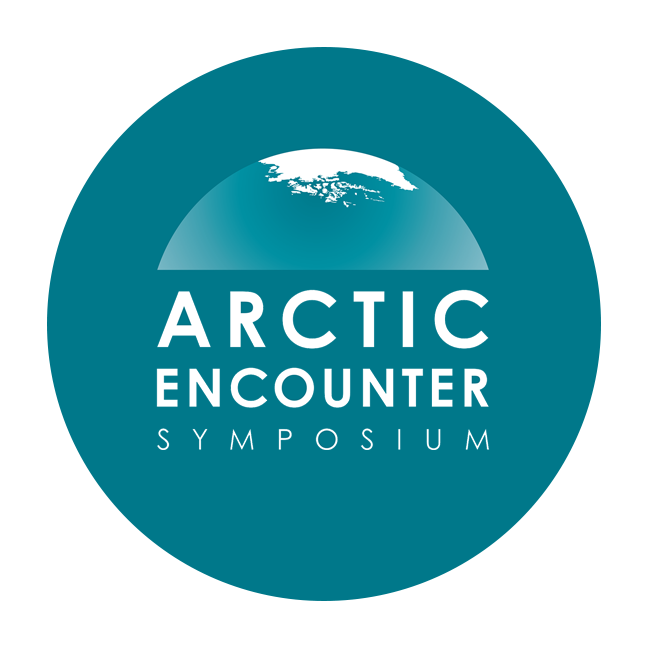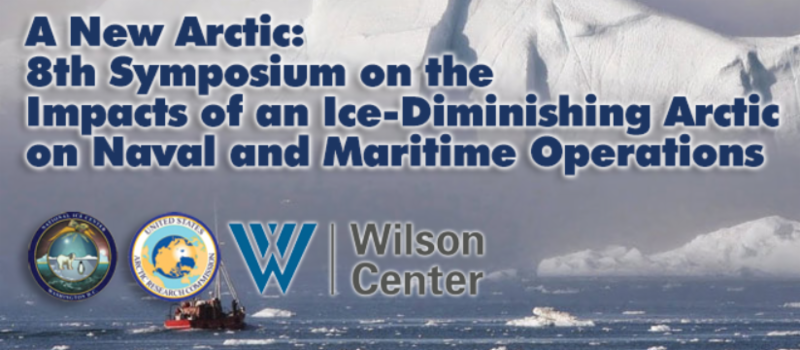|
|
|
|
|
|
|
|
|
No Arctic-science events are scheduled for today.
|
Media
 Arctic Bogs Hold Another Global Warming Risk that Could Spiral Out of Control. Arctic Bogs Hold Another Global Warming Risk that Could Spiral Out of Control. Increasing spring rains in the Arctic could double the increase in methane emissions from the region by hastening the rate of thawing in permafrost, new research suggests. The findings are cause for concern because spring rains are anticipated to occur more frequently as the region warms. The release of methane, a short-loved climate pollutant more potent than carbon dioxide over the short term, could induce further warming in a vicious cycle that would be difficult if not impossible to stop. Inside Climate News
Organizers Praise Preparations for Arctic Science Summit Week. The organizers of Arctic Science Summit Week, the International Arctic Science Committee (IASC), announced that the Arkhangelsk venues are ready for the summit. IASC Executive Secretary Allen Pope said this during a meeting with the region's administration. Allen Pope inspected the infrastructure of the Northern State Medical University and the Northern (Arctic) Federal University and visited the NArFu intellectual center and scientific library, the Lomonosov House science and education center, and Arkhangelsk's Gostiny Dvor (Merchant Court). The Arctic
Alaskan Aleutians Less Suicidal. The indigenous Unangax or Aleut people, living in the Aleutian and Pribilof Islands, have remarkably low suicide rates compared to some other Alaskan Natives. A research team from the U.S. and Canada, among them two Unangax sisters from False Pass in the Eastern Aleutian Islands, recently published a study, contemplating which factors might contribute to reducing mental health issues and suggest preventive measures against suicide. High North News
 Plastic Contaminants Found in Eggs of Seabirds in the High Arctic. Plastic Contaminants Found in Eggs of Seabirds in the High Arctic. Plastic contaminants have been discovered in seabird eggs in the High Arctic - a further sign that synthetic materials are penetrating ever deeper into Nature. Researchers have found chemicals used to make plastic soft and flexible in the eggs of Northern Fulmars way into the Canadian Arctic. iNews
Scientists Track the Source of Soot that Speeds Arctic Melt. Human emissions of greenhouse gases are driving rapid warming all over the globe - particularly in the Arctic, where temperatures are rising at about twice the global rate. But there's another form of carbon in the atmosphere that may also be playing a role. Black carbon particles, or soot, are collecting in the pristine Arctic, darkening the surface of the snow and ice and causing it to absorb more heat. Scientific American
UAF to Name New Coastal Research Vessel. A new research boat will hit Alaska waters this spring. The College of Fisheries and Ocean Sciences at UAF will use the new Research Vessel for coastal science. Alaska Public Media
|
|
Future Events
 of the AAG includes over 8,500 geographers converging from the U.S., Canada, and nearly 60 other countries in a typical year including geographers, GIS specialists, environmental scientists, and other leaders for the latest in research and applications in geography, sustainability, and GIScience. of the AAG includes over 8,500 geographers converging from the U.S., Canada, and nearly 60 other countries in a typical year including geographers, GIS specialists, environmental scientists, and other leaders for the latest in research and applications in geography, sustainability, and GIScience.
 The 6th Annual Arctic Encounter Seattle, April 25-26, 2019 (Seattle, WA, USA). The sixth annual Arctic Encounter Seattle will engage the topic of innovation in the Arctic, specifically disruptive business and investment models, energy and power, climate research, national security, new economic and trade models, and popular media and awareness movements impacting the Far North. The 2018 Arctic Encounter Seattle drew over 300 participants from across Alaska, the U.S., and the world, including over 100 speakers, 32 sponsors, 11 media partners, fashion and photography installations, a live permafrost exhibition, 13 guest performers, fashion designers, and artist exhibitors to the downtown Seattle waterfront at Pier 66. The 2019 Arctic Encounter Seattle expects to increase engagement in new sectors and engage participants through policy debates, research presentations, performances, and more. The two-day Arctic Encounter Seattle will include an opening reception, two continental breakfasts, two keynote luncheons, a networking reception with Alaskan glacier ice cocktails, and a seated three course dinner including keynotes and live musical entertainment from the Far North. The Arctic Encounter is the largest annual Arctic policy and business conference convening in the United States, with partnerships and convening efforts worldwide. Registration is now open. Additional information is available here. The 6th Annual Arctic Encounter Seattle, April 25-26, 2019 (Seattle, WA, USA). The sixth annual Arctic Encounter Seattle will engage the topic of innovation in the Arctic, specifically disruptive business and investment models, energy and power, climate research, national security, new economic and trade models, and popular media and awareness movements impacting the Far North. The 2018 Arctic Encounter Seattle drew over 300 participants from across Alaska, the U.S., and the world, including over 100 speakers, 32 sponsors, 11 media partners, fashion and photography installations, a live permafrost exhibition, 13 guest performers, fashion designers, and artist exhibitors to the downtown Seattle waterfront at Pier 66. The 2019 Arctic Encounter Seattle expects to increase engagement in new sectors and engage participants through policy debates, research presentations, performances, and more. The two-day Arctic Encounter Seattle will include an opening reception, two continental breakfasts, two keynote luncheons, a networking reception with Alaskan glacier ice cocktails, and a seated three course dinner including keynotes and live musical entertainment from the Far North. The Arctic Encounter is the largest annual Arctic policy and business conference convening in the United States, with partnerships and convening efforts worldwide. Registration is now open. Additional information is available here.
North X North Festival, May 1-5, 2019 (Anchorage, Alaska USA).The third annual North x North Summit & Festival celebrates connection and culture across the North. The event features five days of conversations, workshops, exhibitions, performances, presentations, music, dance, installations, food, film and experiences highlighting Northern people, landscapes and cultures.The Summit (May 1-2), which is open to registered participants, focuses on resilience and research, with a special emphasis on gender and Indigenizing. The Festival (May 3-5) is open to the general public and features activities and conversations around climate, gender, innovation, food, indigenizing and earthquakes.
Lowell Wakefield Fisheries Symposium, May 7-10, 2019 (Anchorage, Alaska USA). This symposium aims to provide a forum for discussion on ways to facilitate effective cooperative research, a platform for scientific talks on the application and results of cooperative research, and opportunity to evaluate how such research might be best envisioned, applied and implemented. The symposium aims to involve participants from a variety of relevant marine industries, address these issues through facilitated discussion, identify best practices, and articulate a set of case studies for effective collaboration. The symposium also aims to involve scientists from a wide range of sectors, including state and federal agencies, universities, research institutes and industry science. This event is sponsored by Alaska Sea Grant College Program.
Arctic Science Summit Week, May 22-30, 2019 (Arkhangelsk, Russia). The Arctic Science Summit Week 2019 will take place in Northern (Arctic) Federal University and Northern State Medical University, Russia, Arkhangelsk. Under the auspices of International Arctic Science Committee, participants from more than 23 countries and regions will be involved.
Save the Date! 
Mark your calendars to attend IDA-8, which some have called one of the best Arctic gatherings around. Historically, this biennial symposium was co-hosted by U.S. National/Naval Ice Center (NIC) and the US Arctic Research Commission (USARC). In 2019, these partners will join forces with the preeminent Wilson Center's Polar Institute, as a third co-host. The now 2-day symposium will be held in the Ronald Reagan Building Amphitheater, in Washington, DC. The event will focus on a broad cross-section of naval and maritime operations and issues in an ice-diminishing Arctic. The symposium brings together nationally and internationally recognized experts on Arctic governance, geopolitics, marine operations, infrastructure, science, and environmental observations, from the local, regional, and pan-Arctic scale. Information on prior symposia, including lists of speakers, video clips, and copies of presentations, is available here. Attendance is free, and registration will begin in Spring 2019. The event will be webcast live, and video recorded.
|
|

  
4350 N. Fairfax Drive, Suite 510
Arlington, VA 22203, USA
External links in this publication, and on the USARC's World Wide Web site ( www.arctic.gov) do not constitute endorsement by the US Arctic Research Commission of external Web sites or the information, products or services contained therein. For other than authorized activities, the USARC does not exercise any editorial control over the information you may find at these locations. These links are provided consistent with the stated purpose of this newsletter and the USARC Web site.
|
|
|
|
|
|
|
|
|